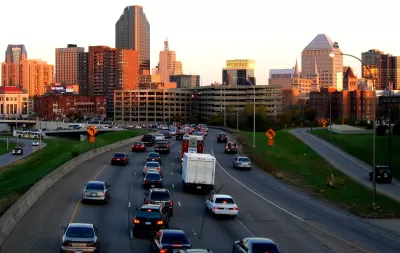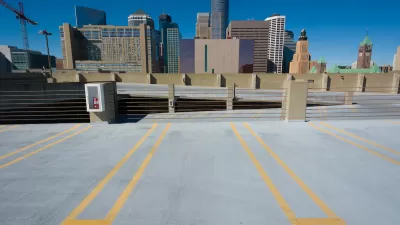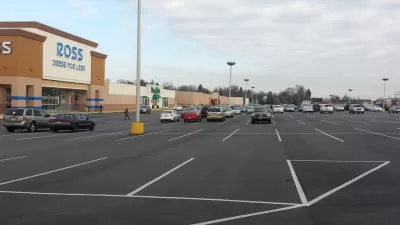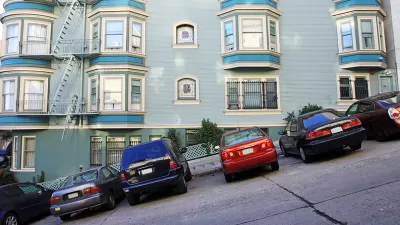The city is one of the first in the nation to completely eliminate parking mandates citywide.

In a move that goes beyond other efforts to reduce parking minimums in select parts of cities, St. Paul, Minnesota has entirely eliminated minimum off-street parking requirements, reports Frederick Melo. "St. Paul officials hope that tossing out parking mandates will open the door to new housing and businesses while moving the city closer to its goal of reducing vehicle miles traveled by 40 percent by the year 2040, and achieving carbon neutrality by 2050."
Developers can still provide off-street parking as they see fit, but zoning rules would no longer require certain numbers of spaces for different types of businesses. "Large developments will be required to offer users transit cards, traffic calming or other alternatives."
However, "[c]ritics have called lifting parking requirements burdensome and impractical, especially in areas with limited or no public transit. There’s also been some concern that the city might lose leverage in negotiations with developers over other public benefits attached to new real estate projects, such as installing bike racks."
With the construction of one parking spot costing anywhere from $5,000 for surface parking to upwards of $50,000 for structure parking, advocates call eliminating parking minimums "a free-market approach that opponents of government regulation should embrace."
FULL STORY: St. Paul eliminates parking minimums

Planetizen Federal Action Tracker
A weekly monitor of how Trump’s orders and actions are impacting planners and planning in America.

Restaurant Patios Were a Pandemic Win — Why Were They so Hard to Keep?
Social distancing requirements and changes in travel patterns prompted cities to pilot new uses for street and sidewalk space. Then it got complicated.

Maui's Vacation Rental Debate Turns Ugly
Verbal attacks, misinformation campaigns and fistfights plague a high-stakes debate to convert thousands of vacation rentals into long-term housing.

In California Battle of Housing vs. Environment, Housing Just Won
A new state law significantly limits the power of CEQA, an environmental review law that served as a powerful tool for blocking new development.

Boulder Eliminates Parking Minimums Citywide
Officials estimate the cost of building a single underground parking space at up to $100,000.

Orange County, Florida Adopts Largest US “Sprawl Repair” Code
The ‘Orange Code’ seeks to rectify decades of sprawl-inducing, car-oriented development.
Urban Design for Planners 1: Software Tools
This six-course series explores essential urban design concepts using open source software and equips planners with the tools they need to participate fully in the urban design process.
Planning for Universal Design
Learn the tools for implementing Universal Design in planning regulations.
Heyer Gruel & Associates PA
JM Goldson LLC
Custer County Colorado
City of Camden Redevelopment Agency
City of Astoria
Transportation Research & Education Center (TREC) at Portland State University
Jefferson Parish Government
Camden Redevelopment Agency
City of Claremont





























